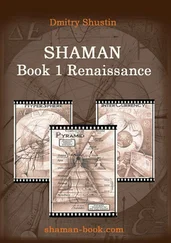‘Yeah, right,’ said Leonid, nodding. ‘That’s a well-known story too. When they ran out of fuel, they buried the tank in the ground on a hill, and laid out a whole farm around it. And for a few more years they talked to Polis on the radio in the evenings.’
‘Until the radio broke down,’ Homer concluded irritably.
‘Right, and what about the submarine?’ his rival drawled. ‘The nuclear submarine that was on a long-range mission, and when the strikes and counter-strikes began, it simply didn’t have enough time to move into battle position. And when it did surface, everything had already been over for ages. So then the crew put it on permanent mooring not far from Vladivostok…’
‘And to this day an entire village is powered by its reactor,’ the old man put in. ‘Six months ago I met a man who claimed to be the first mate of that submarine’s captain. He said he’d crossed the entire country on a bicycle, all the way to Moscow. He was travelling for three years.’
‘Did you talk to him in person?’ Leonid asked in polite surprise.
‘In person,’ Homer snarled.
Legends had always been his hobbyhorse, and he simply couldn’t allow this young smart alec to get the better of him. He had one more story left in reserve, a closely guarded one. He had been intending to tell it on a quite different occasion, not waste it in a pointless argument… But seeing Sasha laughing at this grifter’s latest joke, he made up his mind.
‘But have you heard about Polar Dawns?’
‘What dawns?’ asked the musician, turning towards him.
‘Oh, come on now!’ said the old man said, restraining a smile. ‘The Far North, the Kola Peninsula, Polar Dawns City. A Godforsaken place. Fifteen hundred kilometres from Moscow, and at least a thousand to Peter. Nothing anywhere near it except Murmansk, with its navy bases, but even that’s a fair distance away.’
‘The middle of nowhere, basically,’ said Leonid, encouraging him.
‘Far away from the big cities, the secret factories and the military bases. Far away from all the main targets. The cities that our antirocket shield couldn’t defend were reduced to dust and ashes. The ones that had a shield, where the interceptors had time to cut in…’ The old man looked upwards. ‘You know for yourself. But there were other places that no one was aiming at… because they didn’t represent any kind of threat. Polar Dawns, for instance.’
‘No one has any interest in the place now either,’ the musician responded.
‘But they should,’ the old man snapped. ‘Because right next to Polar Dawns was the Kola Atomic Power Station, one of the most powerful in the country. It supplied power to almost the entire north of Russia. Millions of people. Hundreds of factories. I come from those parts myself, from Arkhangelsk. I know what I’m talking about. And I visited that station as a school kid, on a guided tour. A genuine fortress, a state within a state. Its own little army, its own agricultural land, its own farm. They could survive autonomously. Even if there was a nuclear war, it wouldn’t change anything in their life,’ he chuckled darkly.
‘So what you’re trying to say…’
‘Petersburg went, Murmansk went, and Arkhangelsk, millions of people perished… All the factories, along with the cities… reduced to dust and ash. But Polar Dawns City is still there. And the Kola Atomic Power Station wasn’t damaged. Nothing but snow for thousands of kilometres on every side, expanses of snow and ice, wolves and polar bears. No contact with the centre. And they have enough fuel to supply a large city for several years, but for them, even including Polar Dawns, it will last for a hundred years. They’ll easily make it through the winter.’
‘It’s a genuine ark,’ Leonid whispered. ‘And when the flood comes to an end and the waters recede, down from the summit of Mount Ararat…’
‘Exactly,’ the old man said with a nod.
‘How do you know about this?’ There wasn’t a trace of irony or boredom left in the musician’s voice now.
‘I used to work as a radio operator once,’ Homer replied evasively. ‘I really wanted to find at least one person alive in my own native parts.’
‘Will they hold out for long there, in the north?’
‘I’m sure they will. Of course, the last time I was in contact was about two years ago. But can you imagine what that means – another entire century with electricity? In the warmth? With medical equipment, with computers, with electronic libraries on disks? There’s no way you could know about that… There are only a couple of computers in the entire Metro, and they’re no more than toys. And this is the capital,’ the old man laughed bitterly. ‘And if there are still people left somewhere – not solitary individuals, I mean, but at least villages… They’ve been back in the seventeenth century for a long time already, or maybe even the Stone Age. Wooden spills for light, cattle, witchcraft, every third child dying at birth. Abacuses and birch-bark manuscripts. And apart from the two nearest farms, there’s nothing else in the world. Empty land and desolation. Wolves, bears, mutants. Why, the whole of modern civilisation is built on electricity. When the power runs out, the stations will die, and that’s it. Billions of people took centuries to construct this building, brick by brick, and it’s all been reduced to dust. Start all over again. Only can we do it? But there they have a breathing space, a whole century! You were right, it’s Noah’s Ark. An almost unlimited supply of energy! Oil has to be extracted and processed, gas has to be drilled for and pumped through thousands of kilometres of pipes! Do we have to go back to steam engines, then? Or even further? I’ll tell you what,’ he said, taking Sasha by the hand. ‘People aren’t in any danger. People are as resilient as cockroaches. But civilisation – that’s what I’d like to preserve.’
‘And have they got real civilisation, then?’
‘Don’t you worry about that. Nuclear engineers, the technical intelligentsia. And their conditions are definitely better than ours are here. Polar Dawns has grown quite a lot in the last twenty years. They set up a transmitter with a repeating message: “Calling all survivors…” and it gives their coordinates. They say people still come crawling in, even now…’
‘Why haven’t I ever heard about this?’ the musician muttered.
‘Not many have. It’s hard to pick up their wavelength here. But you try it sometime if you’ve got a couple of years to spare,’ the old man chuckled. ‘The call sign is “Last Harbour”.’
‘I’d have known about it,’ the young man said seriously, shaking his head. ‘I collect cases like that… You really mean there wasn’t any war there?’
‘How can I put it? Wilderness on all sides, even if there were any villages or small towns nearby, they went wild quickly enough. Sometimes the barbarians attacked. And the animals, of course, if you can call them that. But they had the arsenal to hold them off. All-round defences, a fortified perimeter. Electrified barbed wire, guard towers. A genuine fortress, I tell you. And during the first ten years – the worst time – they put up another barrier, a log stockade. They reconnoitred everything around them, even got as far as Murmansk, two hundred kilometres away. There isn’t any more Murmansk, just a fused crater where it used to be. They were even planning to organise an expedition southwards, to Moscow. I tried to talk them out of it. Why cut the umbilical cord? When the background radiation falls, they’ll be able to bring more land under cultivation – and then… But in the meantime there’s nothing they can do here. This place is just one big graveyard,’ Homer sighed.
Читать дальше











